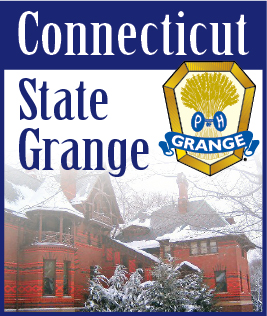| MARCH 26, 2013 -- Amongst the myriad of concerns that animal agriculturists have to manage, what is deemed as “correct husbandry techniques” continues to evolve into a more complex situation. This has become more apparent with several states promoting bills, known as “ag-gags” by animal rights’ defenders, which would limit animal cruelty exposure.
During the last two decades, the family farm has dramatically morphed from the quiet farm homestead that once made for pretty calendar pictures. However, the public hasn’t been as comfortable with this change and hasn’t completely bought into the new science that promotes them. For years, husbandry techniques for cattlemen included branding, castration, docking tails and dehorning. Many professional associations endorsed such practices as a means of best-management-practices, but the standards keep evolving, largely due to animal rights activism.
In recent years, militant animal activists have successfully made media spectacles by capturing animal cruelty on “factory-farms” while drumming up support (finance) from ignorant consumers. “Animal abuse like what you see on gotcha under-cover videos isn’t the industry norm,” say animal agriculturists. Undercover videos have been so damaging to animal agriculture that the industry has poured hundreds of thousands of dollars into lobbying efforts to pass legislation to protect farmers from being subjected to under-cover videos.
In the 2007 Hallmark case, a video was taken of a cow being prodded by a forklift into the slaughter plant and then was aired on national television. This greatly dammed the meat packing industry and required the largest meat recall in U.S. history. To prevent gross exaggerations of industry husbandry practices, like the Hallmark incident, ag-advocates are having their lawmakers write bills into legislation preventing these episodes from reoccurring.
Former Price is Right game show host, Bob Barker, can’t believe his home state of Nebraska is close to passing a law that requires all proof of animal cruelty (videos, pictures and other recordings) to be reported to authorities within 24 hours of witnessing such an act. Failing to do so properly within the time frame or sending the proof to the public before consulting authorities will be illegal.
Some states are making it illegal for individuals who represent animal activist groups to not notify their farm employers about their affiliations, and other states are making it illegal for visitors (nonfarm employees) to have videos or pictures taken. For sure, these new bills infuriate special interest groups who have found much of their success in public standing through capturing barbaric videos. Jennifer Fearing, HSUS’ California Director, says, “I wish the cattlemen actually wanted to stop cruelty, not the documenting of cruelty.” Animal activist groups have been successful in promoting legislation that bends industry’s husbandry standards towards their favor (e.g., eliminating swine gestation crates in California).
HSUS believes this new batch of ag-gag laws are infringing on their freedom of speech and purposefully closing the door on the public who has a growing interest about their food. Industry representatives say these new laws make reporting and stopping animal abuse more effective.
Most industry representatives strongly support legislative action on defending producers from being victimized by someone, or some groups, trying to place their ideals over farming livelihoods. We all know that animal abuse on farms is few and far between and that no farmer in his or her right mind would purposely abuse personal property- and that’s what farm animals are- property. As members of production agriculture, specifically animal agriculture, it’s important to remember that as we continue to deal with opposition by a small segment of society, we must use grassroots, as well as the political process, to see that our industry upholds an imagine that’s fair to producers and consumers.
-Lance Waybright
National Grange Intern |
